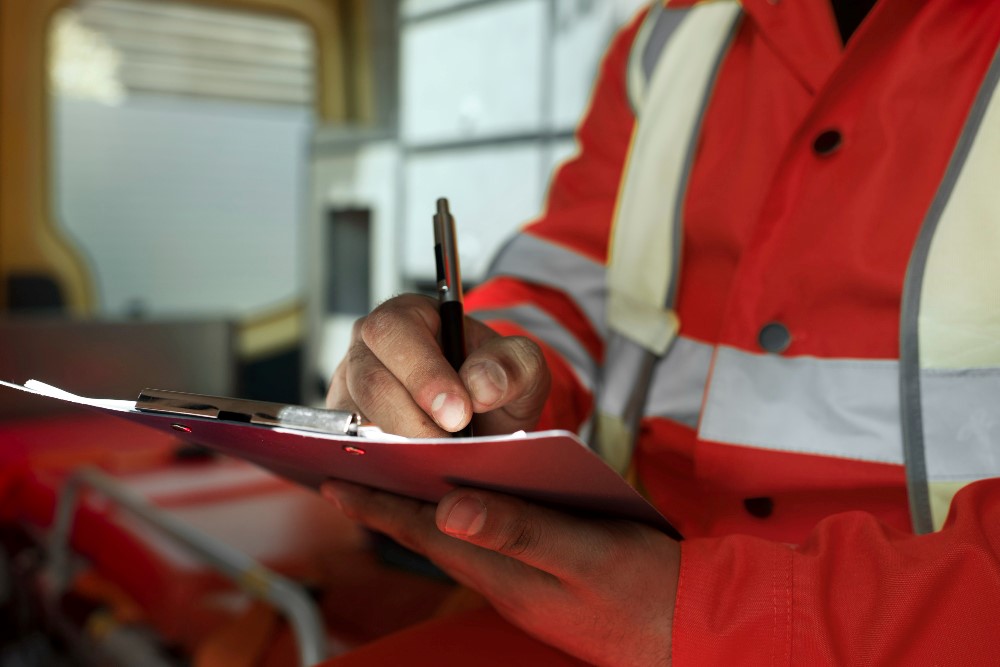
What Strategies Ensure Effective Disaster Preparedness in Industrial Projects?

Having a disaster plan is a critical aspect of industrial projects that often determines success or failure.
A robust disaster plan, developed in collaboration with a trusted structural consultant in Ahmedabad, India, such as VMS Consultants, can ensure effective disaster preparedness in industrial projects by identifying potential risks, implementing preventive measures, and establishing clear protocols for response and recovery.
A well-thought-out strategy can mean the difference between a minimal disruption and a full-scale crisis in an environment where unforeseen challenges can strike at any time.
The purpose of this article is to guide you through the steps to fortify your industrial project against unexpected events through disaster preparedness.
Understanding the Landscape:
To develop effective strategies, we must first understand the potential disaster landscape in industrial settings. Whether it’s a natural calamity, equipment malfunction, or human error, being aware of the risks is the first step towards preparedness.
Conducting a comprehensive risk assessment will help identify vulnerabilities and set the stage for developing targeted strategies.
Robust Planning and Training:
A robust disaster preparedness plan is a cornerstone of success. Prepare an emergency response plan that outlines roles, responsibilities, and communication protocols.
Regularly update and rehearse this plan with all relevant stakeholders, ensuring that everyone is well-versed in their duties during a crisis. Training sessions should cover various disaster scenarios, empowering your team to respond swiftly and effectively.
Technological Integration:
In modern disaster preparedness, cutting-edge technology is essential. Implementing an integrated Disaster Management System (DMS) can provide real-time monitoring and early warning systems.
IoT sensors, predictive analytics, and machine learning can contribute significantly to identifying potential risks before they escalate. A proactive approach can make a substantial difference in preventing disasters or minimizing their effects.
Supply Chain Resilience:
It is common for industrial projects to rely on complex supply chains. As part of disaster preparedness, supply chain resilience should be strengthened.
Provide continuity even in the face of disruptions by diversifying suppliers, maintaining strategic stockpiles, and establishing alternative logistics routes. A more robust and interconnected network can be created by aligning disaster preparedness strategies with suppliers.
Community Engagement:
It isn’t just a matter of internal effort when it comes to disaster preparedness. Engaging with the local community is essential, as their support can be invaluable during and after a crisis.
Establishing open lines of communication, conducting drills, and collaborating on mutual aid agreements can create a cohesive response network that benefits both the industrial project and the surrounding community.
Continuous Evaluation and Improvement:
Disaster preparedness is an evolving process. Regularly evaluate and update your strategies based on emerging threats, technological advancements, and lessons learned from past incidents.
Conducting post-disaster reviews and incorporating feedback into your emergency response plan ensures a dynamic and adaptable approach to disaster preparedness.
Conclusion:
Industrial projects are unpredictable, which makes effective disaster preparedness a strategic advantage as well as a safety net. Understanding the risks, planning carefully, integrating technology, securing supply chains, engaging with communities, and maintaining a continuous improvement mindset will ensure success.
Contact VMS Consultants today to protect your industrial project from unforeseen challenges. With a track record of providing Engineering, Architecture & Project Management Services to various industrial segments, VMS is your partner in ensuring a secure and successful future.
Be prepared, be resilient, choose VMS Consultants.




